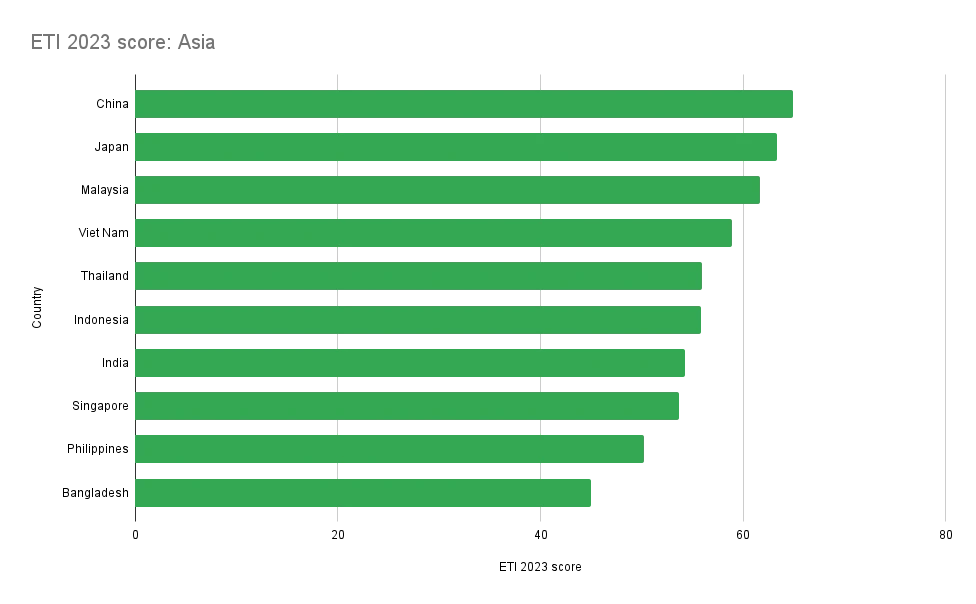Fostering effective energy transition
The Energy Transition Index, which benchmarks 120 countries on their current energy system performance and energy transition readiness ranked India at 67th place globally. The Nordic countries (Sweden, Denmark, Norway and Finland) continue to maintain their top rankings while countries like Kenya and Azerbaijan, jumped significantly higher in their ranking this year. And China making its way into the top 20 as the only Asian country having gained approximately 43% in its transition readiness scores.
Global average ETI scores increased by 10% since 2014
The Energy Transition Index (ETI) framework has been revised this year to incorporate a wider approach to balancing the three imperatives of the energy triangle – equity, security and sustainability – while harnessing transition enablers effectively.
Equity under pressure
The window of opportunity for the energy transition is closing fast. The report highlights challenges for countries due to equity and inclusiveness in transition. Geopolitical developments have resulted in energy price shocks and market volatility. High fuel prices have affected the cost of competitiveness of energy-intensive industries and the rising burden of subsidy post risk to economic growth especially in low-income countries are disproportionately affected due to food price inflation.
Shifting focus
Focus is now on emerging economies like India and China whose energy demand remains unfazed. There has been tremendous growth in infrastructure development including the addition of renewables capacity.
Among the world’s 10 largest economies, only France features in the top 10
Only two major economies, India and Singapore, are showing sustained momentum in building energy equity, sustainability and security. The rest of the world’s energy transition momentum is insufficient.
Key findings

- Over the past decade, the ETI score of advanced economies has increased steadily by 11% led by Nordic countries. While they have been able to achieve 100% access to electricity they have suffered greatly in affordability.
The top 10 countries account for only 2% of global CO2 emissions from fuel combustion and 4% of total energy supply
- Emerging and developing Asia has improved its score by 12% in the last decade. Asia should focus on sustainability as energy demand is expected to double by 2050.

India
Achieving universal access to electricity, replacing solid fuels with liquefied petroleum gas and increasing renewable energy deployment have been primary contributors to the improvement of India’s ETI performance.
The report argues that rising import dependence represents a risk amid global energy market volatilities. The energy mix, however, remains predominantly carbon intensive, with a low share of clean energy in final demand. A skilled workforce, public-private collaboration in innovation, and investment in research and development in low-carbon technologies are necessary to enable India’s energy transition.

